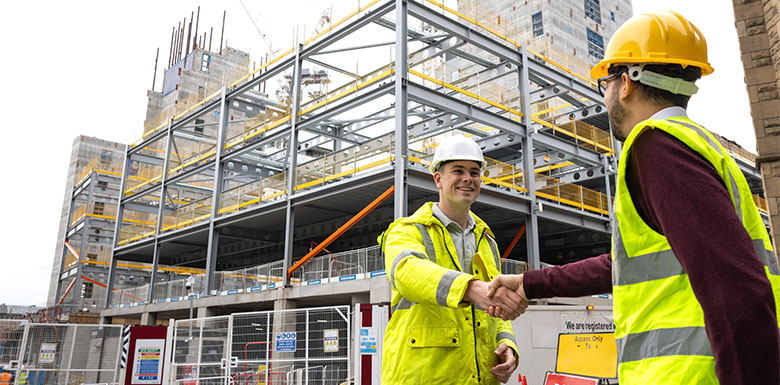How to futureproof your career as a builder
 In this article
In this article
There’s never been a better time to enter the building trade. The Construction Industry Training Board (CITB) reported in January that almost 225,000 extra workers will be required to meet UK demand by 2027, while the Bionic Trade Index 2022 found that building and construction was the sector with the most vacancies, fuelled by the boom in home renovations.
But with economic instability and rising mortgage rates putting the housing market under pressure, it pays to diversify your business, whether you are a well-established firm or just starting out. Upskilling in the latest techniques and learning how to install renewable energy systems will also ensure you stand out from the crowd, as well as add to your earning potential. For example, offering solar panel or heat pump installation as part of your package can be an attractive option for homeowners pricing up an extension.
Read on to find out the ways in which investing your time and money in upskilling will pay for itself in business security and profit.
What skills could I be missing?
There is no one training path for a career in the building and construction industry, with many workers learning on the job as apprentices and honing their skills over time. Keeping on top of the latest techniques, materials and regulations are all key to keeping your business relevant and in demand. It can also protect you from costly mistakes or even legal action.
For example, retrofitting existing buildings as part of the race to achieve net zero carbon emissions by 2050 is one of the construction industry’s biggest challenges, so getting ahead of your competition on this will be beneficial. You want to keep yourself, your workers and your clients safe too, so staying abreast of the UK’s health and safety laws and best practice should be a regular and ongoing training consideration.
If you want to bid for bigger and more ambitious contracts, consider gaining qualifications in project management, so you can offer more to clients than the construction element of the job.
What training opportunities are available?
There is help available to cover the cost of training, so you don’t have to foot the bill alone. The CITB Grants Scheme is for employers in the industry who provide day-to-day training for their workforce, to help maintain standards on construction sites and ensure the right skills are available for the industry to grow.
There is also a Skills and Training fund for small and micro construction companies to deliver high-quality learning and development to employees, as well as for medium-sized construction companies with up to 250 directly-employed staff to improve their training programme. You need to be registered with CITB and meet certain other criteria to apply.
Trade organisations like the Federation of Masters Builders are a great source of information about the latest trends and changes to regulations, and how you can learn more about them.
Is learning to install solar panels worthwhile?
The soaring cost of energy means more homeowners are investing in renewable sources of power – a sector that is likely to grow in coming years. Lorraine Haskell of the Renewable Energy Consumer Code, a Which? Trusted Traders partner organisation, recently reported that the majority of their members specialise in fitting solar photovoltaic (PV) panels, with many booked solid at least six months in advance.
To add this string to your bow, you need to become an MCS certified solar panel installer. According to the Skills Training Group, it costs between £600 and £3,000 to qualify, depending on which route you take. Some people train through an apprenticeship, but for a trader already running a business, a college course would be best. This could be a Level 2 and 3 Diploma in Electrical Installation or an NVQ, from which you would proceed to a specialised course.
One of the main benefits of MSC accreditation is giving customers access to government grants to lower the cost of installing solar panels and other renewable energy systems. Find out more about the pros and cons of solar panels.
Become a Trusted Trader
When customers see you displaying our logo, they'll know you're a trader they can trust
Find out more




